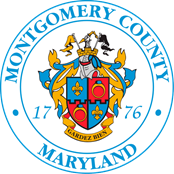Montgomery County, Maryland Información en español

Press Releases
Montgomery Councilmember Hucker introduces 2 bills to protect neighborhoods from vacant and foreclosed properties
For Immediate Release: Wednesday, September 21, 2016
Montgomery Councilmember Tom Hucker
introduces 2 bills to protect neighborhoods
from vacant and foreclosed properties
Each bill will require owners to register their properties,
leading to better upkeep when they are unoccupied
ROCKVILLE, Md., September 20, 2016—Montgomery County Councilmember Tom Hucker today introduced two bills that would protect neighborhoods that have unmaintained vacant or foreclosed properties. Both bills will be the subject of public hearings tentatively scheduled for Tuesday, Oct. 18.
The intent of both bills is to keep unmaintained properties from becoming a nuisance to the community.
“These two bills will address the ongoing problems many of our neighborhoods confront from foreclosed, vacant and neglected properties that are often in persistent disrepair, hurt home values, attract crime and force the County to expend limited resources to enforce code violations,” said Councilmember Hucker. “Bills 38-16 and 39-16 provide the County with new tools to enforce current law, ensure homes are properly maintained and taxes are paid, and encourage delinquent or absentee owners to rent, occupy or sell the property.”
Bill 39-16 regarding vacant properties requires that the Department of Housing and Community Affairs establish and maintain a registry of unmaintained vacant properties. The bill requires owners of vacant properties to maintain them or face financial penalties. Unmaintained vacant properties would be subject to inspection and increased enforcement by the County.
Councilmember Hucker is the lead sponsor of the legislation. Councilmembers Roger Berliner, Marc Elrich, Nancy Floreen, George Leventhal, Nancy Navarro, Hans Riemer and Craig Rice are co-sponsors.
The lead sponsor of Bill 38-16 is Councilmember Hucker. The co-sponsors are Councilmembers Berliner, Elrich, Floreen, Leventhal, Navarro and Riemer. The bill would impose a civil penalty for the failure to register a property that is purchased by foreclosure. By Maryland law since 2012, the purchaser of a foreclosed property must register the property with the Maryland Department of Labor, Licensing and Regulation (DLRR) and the Maryland Foreclosure Task Force within 30 days of the property's foreclosure sale. The law authorizes local jurisdictions to enact legislation to impose a fine of $1,000 for failing to register.
The law was meant to address the period of nine to 18 months that frequently occurs between the date of a foreclosure and the date that the property title is transferred. During this time, local jurisdictions have a hard time identifying the party responsible for maintenance, security and taxes. To date, Montgomery County has not enacted any punitive fine and hundreds of foreclosed properties have gone unregistered since the General Assembly approved the law.
DLLR estimates that 20 percent of foreclosure property purchasers statewide do not register their property or register after the deadline. Based on the data from the State Foreclosure Registry, there were 1,432 foreclosures in Montgomery County in Fiscal Year 2015. Of these, 34 percent (492) either failed to register or registered long after the deadline. The unregistered properties are much more likely to go unmaintained, costing the County thousands of dollars in housing code enforcement and impacting the value of nearby property.
In addition, many purchasers of foreclosed properties—often banks and out-of-state investors—wait to record the deed to the property until it is resold to another purchaser. By circumventing the normal process and improperly (and illegally) transferring the property to a new homeowner in this fashion, the County does not receive the recordation tax or the transfer tax, which shortchanges the County of approximately $6,000 in revenue for a property of average value.
# # # #
Release ID: 16-281Media Contact: Neil Greenberger 240-777-7939, Delphine Harriston 240-777-7931